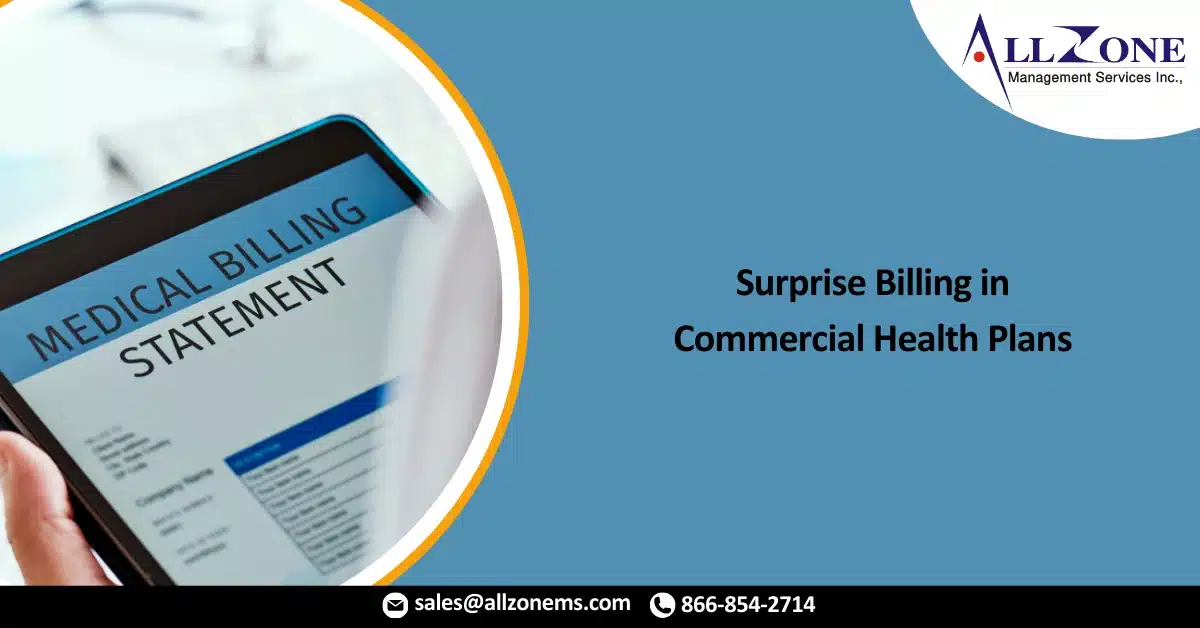The interim rule is in response to the No Surprises Act, which directed multiple US departments to issue a rule that would quell surprise billing in commercial health plans.
The Biden administration has issued an interim rule that regulates surprise billing in commercial health plans and employer-sponsored health plans, CMS announced.
“No patient should forgo care for fear of surprise billing,” said HHS Secretary Xavier Becerra. “Health insurance should offer patients peace of mind that they won’t be saddled with unexpected costs. The Biden-Harris Administration remains committed to ensuring transparency and affordable care, and with this rule, Americans will get the assurance of no surprises.”
The interim final rule with comment period mandates that patients cannot receive surprise medical bills for certain emergency services nor can they receive surprise bills for services delivered by an out-of-network provider at an in-network facility.
That means that emergency services—which may include post-stabilization services, depending on the circumstances—must be covered without prior authorizations, regardless of the facility’s or provider’s network status, and despite any other condition with certain exceptions.
Additionally, the rule limits consumer cost-sharing for out-of-network emergency services. Limits are based on an All-Payer Model Agreement, state law, or the lesser cost between the billed charge and the qualifying payment amount.
The provider’s share of the cost for out-of-network services may be determined based on a couple of factors similar to those used to assess consumer cost-sharing. However, instead of choosing between lesser bills, the provider may pay the amount established with the payer and if there is a conflict the parties may enter an independent dispute resolution.
The rule includes specifications for how providers should inform consumers about these protections, state laws around balance billing, and how to dispute a potential violation.
“No one should ever be threatened with financial ruin simply for seeking needed medical care,” said U.S. Secretary of Labor Marty Walsh. “Today’s Interim Final Rule is a major step in implementing the bipartisan No Surprises Act that will protect Americans from exorbitant health costs for unknowingly receiving care from out-of-network providers.”
There is another part to this rule that has not yet been released which addresses independent dispute resolution processes.
“Facing a difficult medical situation is challenging enough – no one should then face a surprise medical bill when they get home,” said Kiran Ahuja, director of the US Office of Personnel Management (OPM).
“This interim rule helps to protect Americans from financial ruin and honors federal employees, retirees, their covered family members and other enrollees who receive healthcare through the FEHB Program, the largest employer-sponsored plan, by giving them new protections from unexpected medical bills.”
The rule is in response to the No Surprises Act, which Congress passed under the Trump administration in January 2021. Surprise billing was already banned in Medicare and Medicaid, but the No Surprises Act sought to put an end to surprise billing practices that were rampant for consumers in employer-sponsored health plans.
Surprise billing was high on the healthcare agenda in Washington, DC heading into 2020 before the coronavirus pandemic struck. A couple of bills were circulating in Congress as policymakers attempted to find a resolution for this contentious issue that often pits providers, payers, and consumers against one another.
The bill that Congress passed emphasized out-of-network surprise bills, contract dispute reconciliation, and inaccurate provider directories. However, it left some gaps and experts remain uncertain about the downstream impacts.
For example, ground ambulance rides were not protected from surprise billing. More than half of ground ambulance emergency rides result in a surprise bill, according to a recent brief from the Peterson-Kaiser Family Foundation Health System Tracker. Patients who use ground ambulances for non-emergency reasons are also vulnerable to surprise bills, the brief found.
For more information: https://healthpayerintelligence.com/news/hhs-addresses-surprise-billing-in-commercial-health-plans

